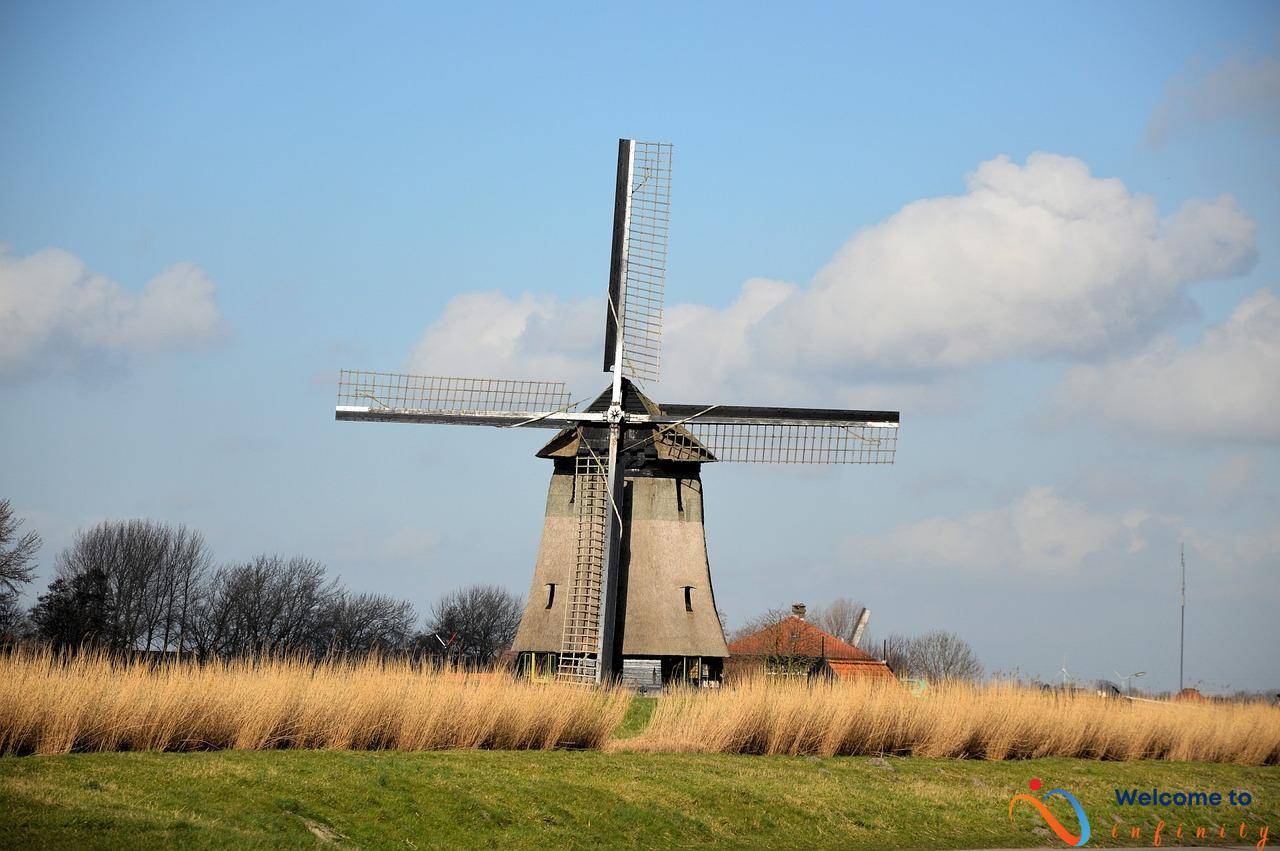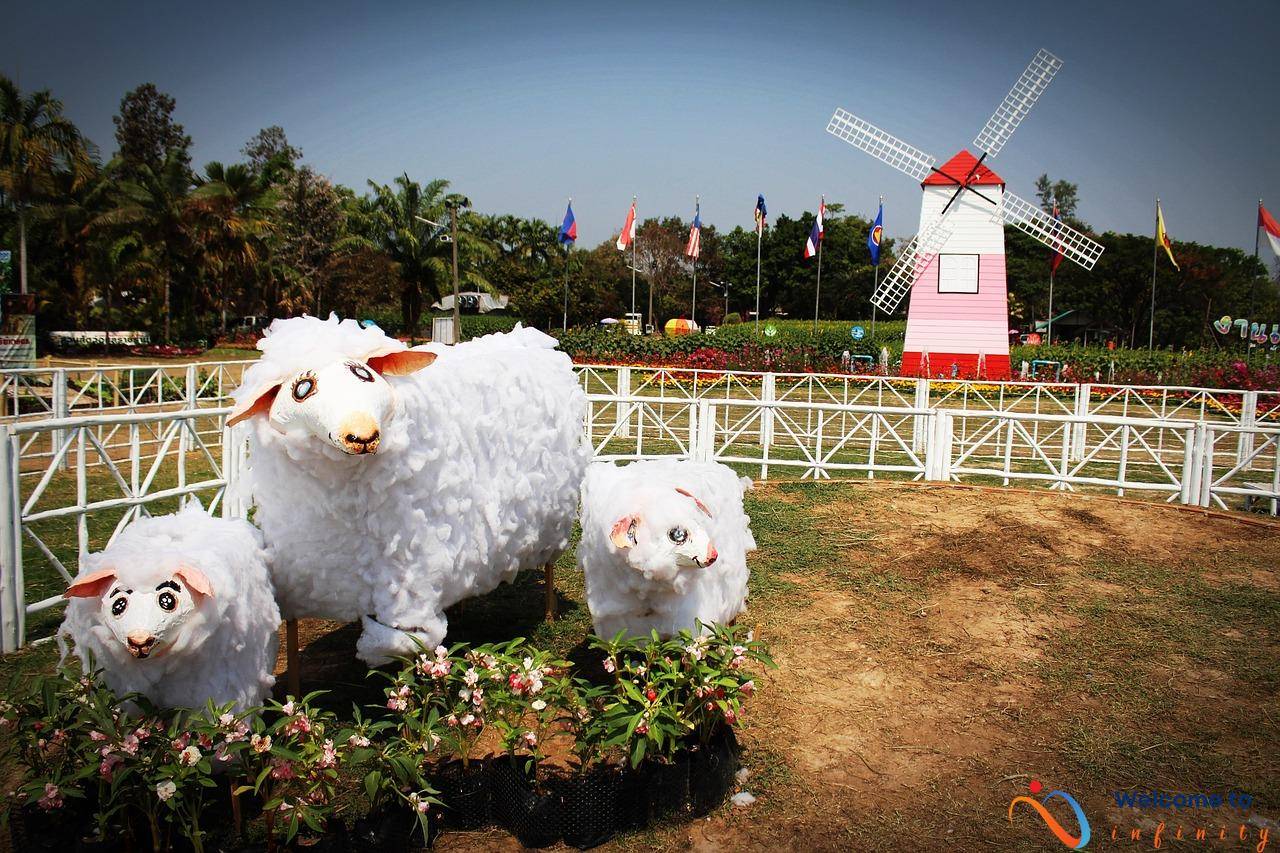Cultural literature is an essential part of literature that portrays the culture and traditions of a community. Such literature reflects the society and community in which it was written. It provides insights into different cultures and bridges the gap between various communities. Cultural literature encourages readers to embrace diversity and promotes empathy towards the characters portrayed in the novels.
In this article, we will discuss the impact of cultural literature and its importance in shaping society. We will also showcase some of the best novels written that accurately reflect society and give readers a glimpse into different cultures. These novels have stood the test of time and continue to be relevant to this day.
As readers, we can learn a lot from cultural literature. It broadens our perspective and helps us to understand different cultures and traditions. Through these novels, we can gain valuable insights into human behavior and emotions. We can learn about different ways of life, the impact of societal norms, and traditions on human behavior.
Cultural literature not only educates and inspires but also has the power to break down barriers. It encourages readers to embrace differences and appreciate diversity. By reading novels that reflect society, we can broaden our worldview and develop a greater understanding of the world we live in. In conclusion, cultural literature is an essential part of literature that accurately reflects society and helps readers to connect and empathize with different cultures and traditions.
The Importance of Cultural Literature
Cultural literature plays a vital role in providing readers with insight into different cultures, enhancing their awareness, and promoting a deeper understanding of diverse societies. Literature is more than just entertainment; it is a reflection of society, a mirror that illustrates the triumphs and struggles of individuals, communities, and nations.
Through cultural literature, readers are able to experience parts of the world that they may never have encountered before. By exposing readers to unfamiliar perspectives, beliefs, and values, cultural literature helps to break down barriers and bridge the gaps between communities. It enables readers to gain a more profound understanding of our complex world, encourages empathy, and expands their perspective.
Cultural literature also provides a platform for marginalized voices and allows them to share their experiences and stories with a larger audience. Literature can serve as a powerful tool for social change and can challenge cultural norms and societal expectations. It provides a voice for those who may have been silenced, and enables them to share their unique perspectives, ideas, and experiences with the world.
Ultimately, the importance of cultural literature lies in its ability to enrich and enlighten readers. By exploring the themes found in cultural literature, readers gain a richer understanding of the world around them and develop a deeper appreciation for different cultures and their unique perspectives. As such, cultural literature has the power to promote empathy, understanding, and inspire a more inclusive world.
The Best Novels That Reflect Society
“To Kill a Mockingbird” by Harper Lee, “The Kite Runner” by Khaled Hosseini, and “Things Fall Apart” by Chinua Achebe. These novels delve deep into the cultural and societal issues prevalent in their respective settings and provide readers with a glimpse into the lives of diverse communities worldwide. “To Kill a Mockingbird” highlights the realities of racial discrimination in Southern America during the 1930s, while “The Kite Runner” deals with the themes of friendship, betrayal, and redemption set against the backdrop of Afghanistan's political turmoil. “Things Fall Apart” provides a thought-provoking account of colonialism's impact on the Igbo community in Nigeria and showcases the struggles faced by the protagonist as he tries to adapt to the changing times. These novels retain their relevance even today and continue to inspire readers of all ages and backgrounds. Through their powerful narratives and realistic characters, these novels offer an unforgettable reading experience that can expand one's horizons and deepen one's understanding of different cultures and societies.
To Kill a Mockingbird
To Kill a Mockingbird, written by Harper Lee, is a novel that vividly portrays society's inherent racial injustice during the 1930s. Through its protagonist, Scout Finch, the novel explores themes of prejudice, courage, and the loss of innocence, making it a timeless classic. The novel takes place in Maycomb, a fictional town in Alabama, where racial segregation and inequality were the norm.
The story follows Scout Finch's father, Atticus, as he defends a black man falsely accused of raping a white woman. The novel's portrayal of the trial highlights the harsh reality of racial prejudice and discrimination prevalent during that era. The novel's central message is that regardless of social status, all humans should be treated with respect and dignity.
One of the reasons To Kill a Mockingbird is a literary masterpiece is its ability to connect with readers on a personal level. It highlights the importance of standing up for what one believes in, even if it means going against societal norms. Through Scout's character, we learn the importance of empathy and understanding towards others, regardless of their race or background.
In conclusion, To Kill a Mockingbird is a novel that continues to impact society significantly. It highlights the importance of social justice and encourages readers to embrace differences. Through its powerful storytelling and relatable characters, it has become a classic and an essential read for anyone interested in cultural literature.
by Harper Lee,
To Kill a Mockingbird by Harper Lee is a literary masterpiece that accurately portrays the issues of racial injustice that were prevalent in the 1930s Deep South. The novel explores the themes of prejudice, courage, and the loss of innocence, making it a timeless classic that continues to resonate with readers today. The story is narrated by a young girl named Scout Finch, who along with her brother Jem, witnesses the injustices faced by black people in their community.
One of the most powerful moments in the novel is when Atticus Finch, Scout's father and a respected lawyer, defends a black man who has been accused of raping a white woman. Despite overwhelming evidence of the man's innocence, he is convicted solely on the basis of his race. The trial scene is a powerful depiction of the systemic racism and injustice faced by black people in America during this time period.
To Kill a Mockingbird continues to be a highly regarded piece of cultural literature that has the power to educate and inspire. Its enduring message of tolerance, understanding, and respect for all people is just as relevant today as it was when it was first published in 1960.
The Kite Runner
The Kite Runner by Khaled Hosseini is a must-read for anyone interested in cultural literature. The novel is set in Afghanistan and follows the story of two young boys, Amir and Hassan. Amir is a wealthy Pashtun boy, while Hassan is his Hazara servant and best friend. The novel explores the complex relationship between the two boys and the tragic consequences that follow. Hosseini captures the turmoil of life in Afghanistan before and after the Soviet invasion and the rise of the Taliban.
The Kite Runner is a powerful and moving novel that explores themes of friendship, betrayal, guilt, redemption, and the clash of cultures. The novel captures the beauty of Afghanistan's landscape and culture and the tragic consequences of war and conflict. Hosseini's writing is both vivid and lyrical and will leave a lasting impression on the reader.
The Kite Runner is a timeless classic that has touched the hearts of readers all over the world. It is a testament to the power of cultural literature and the need to understand and appreciate different cultures. The novel is a must-read for anyone interested in exploring the rich and diverse world of cultural literature.
by Khaled Hosseini, and
‘The Kite Runner' by Khaled Hosseini is a powerful novel that explores the complexity of human relationships against the backdrop of a changing society. The novel takes place in Afghanistan and tells the story of a young wealthy Pashtun boy named Amir and his loyal Hazara servant, Hassan. The novel delves into themes of friendship, betrayal, guilt, redemption, and the consequences of one's actions.
Through the story, the readers learn about the political and social turmoil and the impact of the Soviet invasion of Afghanistan. The powerful portrayal of the cultural and social dynamics of Afghanistan, along with the rich character development, make ‘The Kite Runner' a novel that is hard to forget. The novel highlights how societal norms demand conformity and how defying them could lead to dire consequences. It also showcases the beauty of loyalty, courage, and the love that transcends social boundaries.
‘The Kite Runner' has won numerous accolades globally and has been turned into a movie. The novel is a must-read for individuals who want to understand Afghanistan's cultural and political nuances, the universal themes that bind humanity, and the power of forgiveness and redemption. It is a book that can influence and inspire individuals to be compassionate, empathetic, and make amends in their relationships.
Things Fall Apart
Things Fall Apart, by Chinua Achebe, is a poignant novel that highlights the impact of colonialism on traditional African society. The story follows the life of Okonkwo, a proud and respected warrior in an Igbo community in Nigeria.
The novel is divided into three parts, and each part explores the societal changes that occur as a result of colonialism. In the first part, Achebe provides insights into the community's traditions and customs, highlighting their reverence for ancestors and their way of life.
The second part of the novel explores the arrival of white missionaries and the conflicts that arise due to their interference in the community's traditional way of life. The protagonist, Okonkwo, resists the forces of colonialism, leading to tragic consequences for both him and his community.
The final part of the novel showcases the devastating impact of colonialism on the Igbo community. The arrival of the white man leads to the destruction of traditional values and customs, ultimately resulting in Okonkwo's death.
Achebe's novel is a powerful portrayal of African culture, traditions, and societal norms. It highlights the challenges faced by traditional societies in adapting to the rapid changes brought about by colonialism. The novel has been translated into over 50 languages and has become a key text in African literature.
If you're interested in exploring African literature and gaining insights into African culture, Things Fall Apart is an excellent place to start. It provides a compelling narrative and offers a deeper understanding of the complexities of African society.
by Chinua Achebe.
Published in 1958, Things Fall Apart is considered a masterpiece in African literature. Set in the late 19th century, it portrays a tribal culture in Nigeria before and after the arrival of European colonizers. The novel follows the life of Okonkwo, a respected leader in the Igbo community who struggles to adjust to the changes brought by the arrival of Europeans.
Achebe's powerful narrative technique, rich cultural background, and attention to detail in the portrayal of the Igbo culture make Things Fall Apart a must-read for anyone interested in understanding different societies and cultures. It highlights how complex and nuanced cultural conflicts can be and the impact of colonialism on traditional ways of life.
- The novel has been translated into over 50 languages and has been a subject of academic discourse worldwide.
- It is a critical reflection on the impact of the European presence in Africa.
- The protagonist, Okonkwo, is a symbol of the traditional African culture struggling to survive amidst the changes brought about by colonialism.
Through Things Fall Apart, Achebe not only provided a glimpse into the life of an Igbo community in Nigeria but also highlighted the importance of preserving traditional cultural values and beliefs in the face of external pressures. It is a powerful and poignant portrayal of a society caught in the crossfire of cultural conflict and change.
To Kill a Mockingbird
To Kill a Mockingbird is a powerful novel that explores deep-seated racism in the American south during the 1930s. The story is told through the eyes of Scout Finch, a young girl who learns important life lessons alongside her brother and their friend Dill. The novel is a timeless classic that has resonated with millions of readers around the world. It highlights the importance of standing up for what is right, even if it means going against popular opinion. The character of Atticus Finch, Scout's father, is a shining example of integrity and morality. Through his unwavering commitment to justice, he teaches his children and readers alike the true meaning of courage and compassion.
Harper Lee masterfully captures the nuances of southern society and the complexities of life during this time. The novel explores themes of prejudice, loss of innocence, and the importance of empathy. It is a must-read for anyone who wants to understand the impact of racism and inequality on society and is a perfect example of how cultural literature can educate and inspire.
To Kill a Mockingbird
To Kill a Mockingbird is a powerful novel that accurately portrays society during the time of racial discrimination in the 1930s. The novel is set in the deep south of America and delves into themes of prejudice, courage, and the loss of innocence. The plot revolves around a black man, Tom Robinson, who is falsely accused of rape and the struggle of a white lawyer, Atticus Finch, who defends him. The book highlights the social inequality of the time and has become a timeless classic that is still relevant in modern times.
One of the most significant aspects of the book is the character development of the protagonist, Scout Finch. She starts off as an innocent child and gradually learns about the harsh realities of the world as she witnesses the injustices of her society. This development allows readers to connect and empathize with her character, as she experiences moral conflicts and loss of naivety in the face of prejudice and discrimination.
The novel's impact on society has been significant since its publication in 1960, and it has become a staple of high school English curriculums. To Kill a Mockingbird has won multiple awards and has been translated into over 40 languages. It has also been adapted into a film and has become a cultural reference point for racial equality and justice. The book's message of compassion and understanding continues to inspire and influence people of all ages and backgrounds.
Harper Lee's To Kill a Mockingbird is a novel that is set in the deep south of America during the 1930s. The story follows a young girl named Scout, who witnesses the racial injustice that is prevalent in her town. The novel explores themes of prejudice, courage, and the loss of innocence.
Atticus Finch, Scout's father, is a lawyer who represents a black man accused of raping a white woman. The town is divided, and Atticus faces criticism and even threats for defending his client. Despite the odds against him, Atticus stands up for what is right and fights against the racial prejudices that plague their society.
Through Scout's eyes, the reader sees how the innocent can be corrupted by society's biases and how it takes courage to stand up against them. This novel has become a timeless classic because it not only highlights the racial injustice of the past but also raises awareness of similar issues that still exist in our society today.
To Kill a Mockingbird
Set in the deep south of America, Harper Lee's To Kill a Mockingbird is a novel that highlights the racial injustice prevalent during the 1930s. Through the protagonist Scout Finch's perspective, Lee explores themes of prejudice, courage, and the loss of innocence, making it a timeless classic. The novel's central character, Atticus Finch, a courageous lawyer, stands up for what is right by representing a black man who has been wrongly accused of rape. The novel not only gives a glimpse of life in the south during the Great Depression but also serves as a reminder that racial injustice still exists in different forms in today's society.
To Kill a Mockingbird encourages readers to empathize with the characters and broadens their perspective. It highlights the importance of standing up for what is right, regardless of the consequences, and the power of empathy and understanding in creating a better world.
The novel deals with issues that are still relevant today, making it a must-read for anyone interested in cultural literature. With its powerful message and relatable characters, To Kill a Mockingbird continues to inspire readers of all ages and remains a classic that reflects society's struggles with race and justice.
The Kite Runner
The Kite Runner is a novel written by Khaled Hosseini that has gained popularity for its portrayal of life in Afghanistan and the complex relationships between its characters. The story follows the friendship between two boys, Amir and Hassan, who are from different social classes. Despite their differences, they bond over a shared love of kite running, a popular pastime in Afghanistan.
The novel takes the reader on a journey through the political turmoil in Afghanistan, including the Soviet invasion and the rise of the Taliban. Hosseini sheds light on the impact of war and religious extremism on the lives of ordinary people. Through the eyes of Amir, the reader witnesses the challenges of living under a dictatorship and the devastation caused by war.
However, the heart of the novel lies in the relationships between the characters. The emotional connection between Amir and Hassan is one of the most complex and compelling aspects of the novel. Hosseini explores themes of guilt, betrayal, and redemption through their intertwined storylines. The Kite Runner shows the consequences of turning a blind eye to injustice and the power of seeking forgiveness.
The Kite Runner is a powerful novel that offers a glimpse into the complexity of Afghan culture and society. It is an emotional journey that will leave readers with a deeper understanding of the world we live in today.
The Kite Runner by Khaled Hosseini is a powerful novel that delves into the complexities of friendship and betrayal. Set in Afghanistan, the book explores the story of Amir, a wealthy Pashtun boy, and his close servant, Hassan, who belongs to the persecuted Hazara minority.
The novel portrays the stark inequality and social hierarchy that existed in Afghan society, where Hazaras were an oppressed minority. Despite differences of class and ethnicity, Hasan and Amir shared a strong bond, forged through a shared love of kite running.
However, when Amir fails to help Hassan during a traumatic incident, their friendship is shattered, and Hassan is forced to leave Amir's family. The sudden loss of his friend haunts Amir, and he struggles with guilt and regret throughout the novel.
The Kite Runner is also a touching portrayal of Afghanistan before and after the Soviet invasion and the rise of the Taliban. It shows how a once-prosperous country was torn apart by war, corruption, and religious extremism. Through the eyes of Amir, readers witness the decline of a once-vibrant city and the hardships its people faced.
Overall, The Kite Runner is a stunning novel that explores the complexities of friendship and society. It provides valuable insights into Afghan culture and history, and highlights the universal themes of loyalty, betrayal, and redemption.
To Kill a Mockingbird
To Kill a Mockingbird is a novel that explores themes of racial inequality and injustice that were prevalent in the American South during the 1930s. Written by Harper Lee, this novel has become a classic in American literature due to its powerful depiction of society. The novel is narrated by Scout Finch, a young girl who tries to understand the world around her. Scout's father, Atticus Finch, is a lawyer who defends an African American man accused of raping a white woman. The trial exposes the deep-rooted racism and prejudice prevalent in the town and highlights the importance of courage and standing up for what is right. This novel is a testament to the power of cultural literature in creating empathy and understanding between different communities.
Things Fall Apart
Things Fall Apart is a powerful novel that delves into the complexities of Igbo culture in Nigeria and how it changed with the arrival of colonialism. The novel is a masterpiece of African literature and is widely recognized for its portrayal of pre-colonial Africa.
The protagonist, Okonkwo, is a respected leader in his village and upholds the customs and traditions of his people. However, with the arrival of European missionaries, his world is turned upside down. The novel showcases the struggle of the Igbo people to hold onto their cultural identity and resist the influence of colonialism.
Through vivid descriptions of Igbo rituals and beliefs, the novel provides a fascinating insight into the culture of the Igbo people and how it was impacted. It also highlights the clash between traditional values and Western ideals and explores the devastating consequences of colonization.
The novel has been praised for its poignant commentary on human nature and the destructive impact of imperialism. It is a must-read for anyone interested in African literature and the impact of colonialism on indigenous cultures. Things Fall Apart serves as an important reminder of the importance of cultural heritage, and the need to preserve it in the face of external pressures.
Written by Chinua Achebe, this novel offers readers a glimpse into the life of an Igbo community in Nigeria and the effects of colonialism on their traditions and way of life. The protagonist, Okonkwo, is a respected leader in his village, but struggles to adapt to the changes introduced by colonialism.
When Christian missionaries arrive in the village, they bring with them a new religion and way of life that threaten the customs and beliefs of the Igbo people. Okonkwo, who values strength and courage, sees these changes as signs of weakness and attempts to resist them. However, his resistance ultimately leads to his downfall and tragic end.
The novel showcases the impact of colonialism on different levels, from the disruption of the traditional social structure to the loss of language and culture. It highlights the struggles of the Igbo people as they try to navigate the changes brought about by colonialism and retain their sense of identity.
- The novel explores themes such as tradition, change, power, and identity.
- It provides a critique of imperialism and the damaging effects it can have on cultures and societies.
- The novel has gained worldwide recognition as a literary masterpiece and is often studied in academic settings.
Overall, Things Fall Apart serves as a powerful reminder of the importance of cultural preservation and the devastating consequences of cultural erasure. It urges readers to reflect on the impact of colonialism on marginalized communities and the need to promote cultural diversity.
The Power of Cultural Literature
Cultural literature plays an important role in educating and inspiring readers. Novels that accurately depict different cultures and societies help readers understand and appreciate diverse cultures, encouraging them to embrace differences. Through reading novels that reflect society, readers can gain valuable insights and perspectives that can shape their worldview and broaden their understanding of the world.
By exploring different cultures and experiencing the challenges and triumphs of characters from diverse backgrounds, readers can improve their empathy and understanding of others. This, in turn, can help readers become more tolerant and accepting of those who are different from themselves.
Cultural literature has the power to challenge readers' assumptions and beliefs, encouraging them to critically evaluate their own worldview. This can lead to personal growth as readers are exposed to new ideas, perspectives, and ways of life that they may not have considered before. Through exposure to different cultural experiences, readers can see the world through a new lens and gain a deeper appreciation for the complexities of the world we live in.
In conclusion, cultural literature is a powerful tool for education and inspiration. By reading novels that accurately reflect society, readers can gain valuable insights and perspectives that can shape their worldview, broaden their understanding of the world, and improve their empathy and understanding of others. Whether exploring the deep south of America, the streets of Kabul, or the traditions of an Igbo community in Nigeria, cultural literature has the power to challenge and inspire readers in profound ways.










